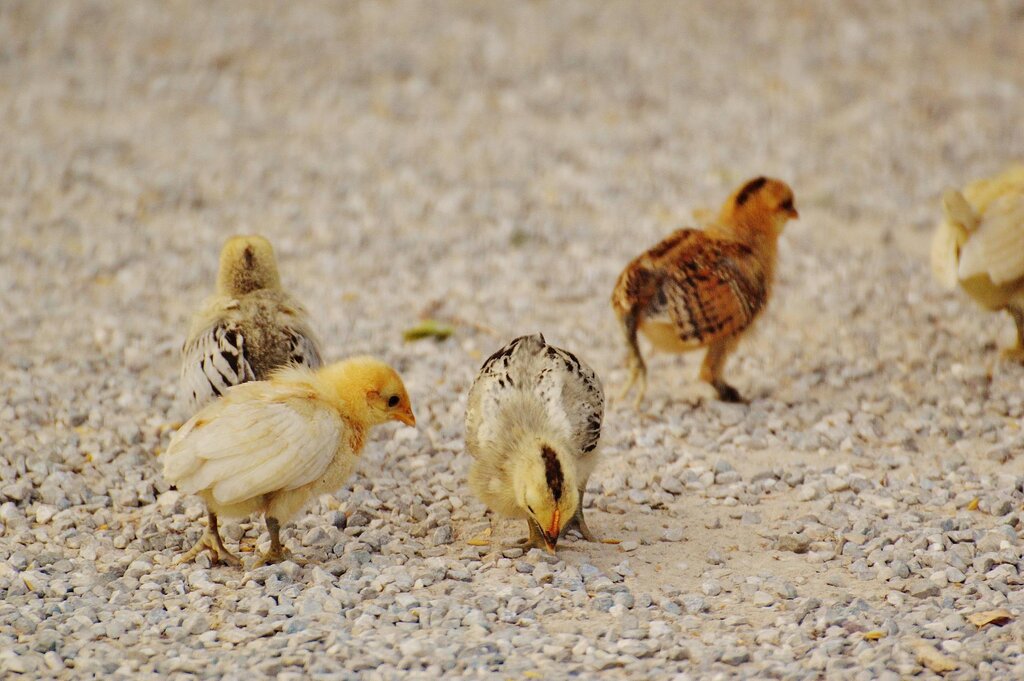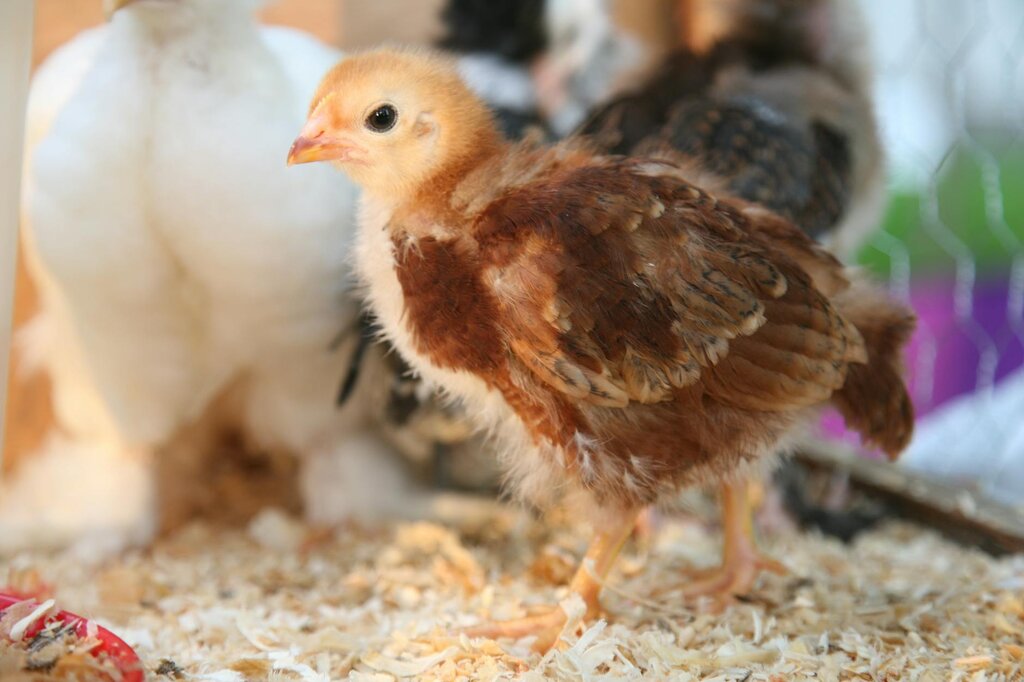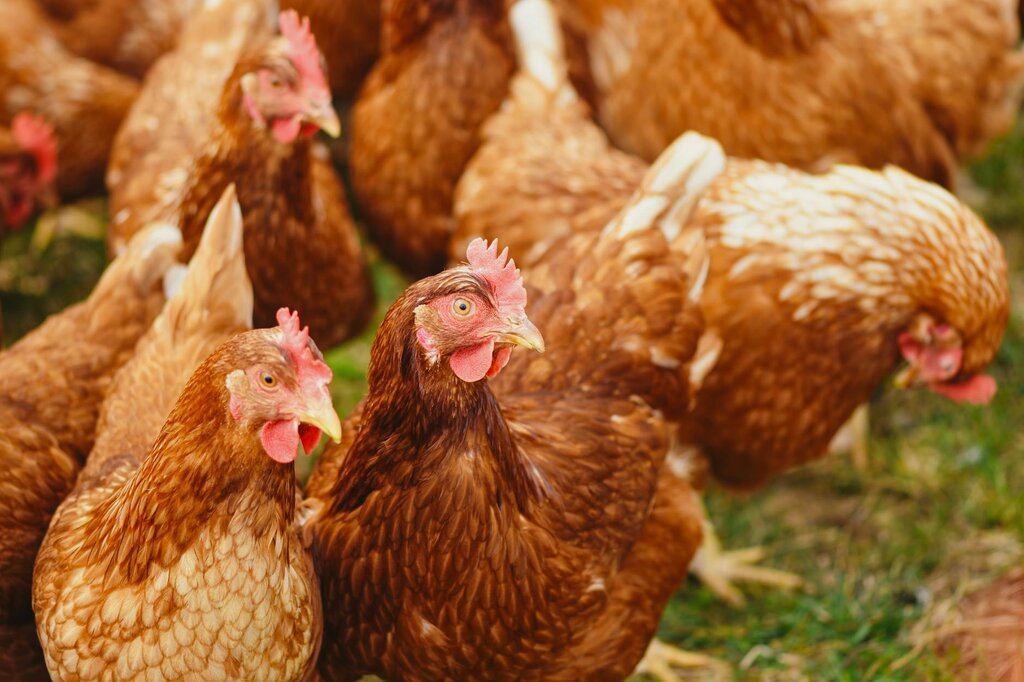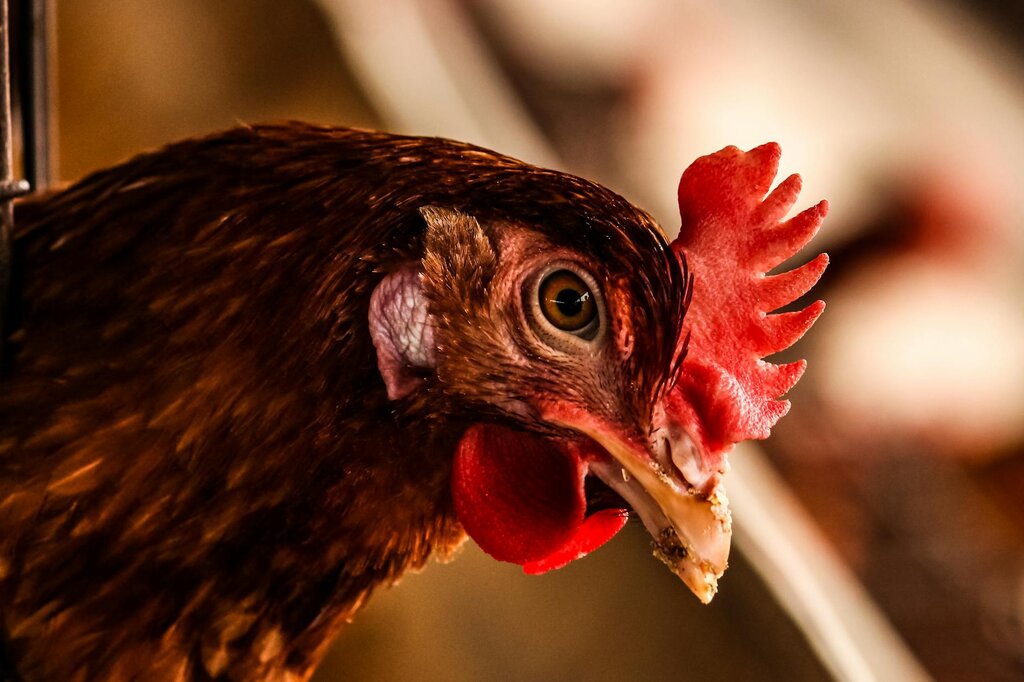Last Updated: 11/11/2025
Feeding Chickens at Every Age: A Vet's Guide
Read our vet guide to give your Chickens the right nutrition throughout their lives.
Author: Dr Nicole Wynne BSc BVMS MANZCVS (Unusual Pets)
Reading Time: 6 minutes - short read
Proper nutrition is essential throughout a chicken's life to help them grow into happy, healthy birds. A young chick's dietary needs are very different from a laying hen's, so it's important to feed the right food at the right time.
What to feed baby chicks (hatching to 6 weeks)

This is a critical period where most of a chicken's growth and development occurs. With their immune systems and organs still developing, chicks are very susceptible to illness.
- Provide warmth: Chicks cannot regulate their own body temperature until they grow their adult feathers (fledge). They need a constant external heat source, like a heat lamp.
- Easy access to food and water: Keep their food and water dispensers close to the heat source so they don't have to travel far.
- Feed a chick starter: Use a high-protein, calorie-dense chick starter formula. These come in small pellets or crumbles that are easy for tiny beaks to eat.
- Constant availability: Chick starter feed and fresh, clean water should be available to them 24/7.
- Consider medicated feed: Many chick starters contain a coccidiostat. This is a medication that helps prevent coccidiosis, a common and often fatal intestinal parasite in young chicks. For this reason, starter feed should only be fed to young chickens.
- If using unmedicated feed: You must maintain excellent hygiene and biosecurity to reduce the risk of illness.
Feeding your growing chickens (6 to 20 weeks)

Once chicks start growing their adult feathers, they become much more robust. They are still growing, however, and their bodies are preparing for the huge task of laying eggs. Good nutrition at this stage is vital for their future health.
- Switch to a grower feed: This feed has slightly less protein than starter feed but contains more calcium.
- Build strong bones: Calcium is crucial for developing a strong skeletal system. A hen's bones act as a calcium reservoir for future eggshell production.
- Introduce new foods: This is the perfect time to gradually introduce a variety of healthy treats.
- Safe treats include: Leafy greens, corn, capsicum, carrot, pumpkin, and fruits like apples, pears, bananas, and stonefruit.
- Foods to avoid: Onions, garlic, leeks, chives, and avocado are toxic to birds. Avoid raw potato and sweet potato, as they are difficult to digest.
Best diet for egg-laying hens

Chickens reach the "point of lay" at 18-20 weeks of age. By 20 weeks or 5 months these mature laying hens are now fully grown with developed immune systems. Their diet is focused on maintaining their own health while producing a steady supply of eggs.
- Feed a layer formula: Layer pellets or crumbles are specifically balanced with moderate protein and high calcium to support healthy egg production without depleting the hen's own reserves.
- Encourage variety: A high quality layer pellet or crumble should form the main part of their diet. Then 20-25% of the diet can include a variety of fresh vegetables, fruits, insects and a small amount of treats (< 10% of the overall diet).
- Use supplements with care: A hen on a high-quality diet formulated for egg production should not require extra supplements in normal circumstances unless recommended by a veterinarian. Be mindful that some supplements for pet birds may contain ingredients that are not suitable for food-producing animals.
Nutritional needs for older chickens

As chickens get older and stop laying, their energy needs change. They no longer require such high calcium and protein levels found in layer feed.
- Watch their weight: Older birds may gain or lose weight. Their position in the flock's pecking order can also change, so you may need to feed them separately to ensure they are getting enough food.
- Adjust their diet: Layer pellets should be continued until your hen stops producing eggs. At this lifestage, while layer feed isn't harmful, a feed designed for growers/pullets is a good choice for non-laying hens. It contains a moderate level of protein and a lower calcium content compared to layer feed. Alternatively, a 'All-Flock' or 'Maintenance' feed is an excellent option for non-laying birds.
- Support ageing joints and health: Adding antioxidants and beneficial fatty acids to their diet can be helpful. Supplements like Passwell Good Oil or Rose Hip Vital are good sources of these nutrients.
Treats for chickens
Treats can make up to 10% of your chickens diet. Feeding more than this is not recommended as it will lead to nutritional imbalances, obesity and health problems. Treats can be a great source of enrichment for your chicken and a fantastic way to bond with your chicken and to gain their trust so treats can definitely stay on the menu as long as they are fed in moderation! Some yummy treats that chickens love include fruits like berries, seed or scratch mixes, mealworms and even a bit of egg! Tip: you can cook and scramble up their own eggs and feed it back to your hens once a week for a little omega 3 and calcium (if you also feed the shell) boost.
FAQs
By understanding and meeting the specific nutritional needs of your chickens at each life stage, you can help them live long, healthy, and productive lives.
From high-protein starter crumbles for new chicks to specialised layer pellets for egg-laying hens and maintenance diets for seniors, the right food makes all the difference. Tailoring their diet as they grow ensures your feathered companions have the essential building blocks to thrive.
Articles recommended for you
Our vet authored guide to the benefits of feeding your dog fresh food plus tips and advice for introducing it into their regular menu.
See our guide to protecting your pet from parasites from our vet team.
Thinking of getting a fish? Check out our guide for setting up a tank and home care tips!
Looking to understand horse feeds better? This comprehensive guide covers feeding recommendations for horses of all ages and disciplines.
Does your pet suffer from anxiety? Check out our Vet-guide for treatment options to help your pet.
History
Our experts continually monitor the health and wellness space and we update our articles when new information becomes available.
Tue 11 Nov 2025
Edited by Dr Olivia Clarke BSc BVMS MANZCVS (Unusual Pets, Avian)Medically reviewed by Dr Olivia Clarke BSc BVMS MANZCVS (Unusual Pets, Avian)Dr Nicole Wynne BSc BVMS MANZCVS (Unusual Pets)
Veterinarian, MANZCVS (Unusual Pets)
Dr. Nicole graduated from Murdoch University in WA in 2014, and immediately started working in exotics-only practice. She was also one of the few vets in Australia that would routinely see venomous snakes ranging from death adders to tiger snakes. Although Dr. Nicole enjoys seeing all exotic pets, her absolute favourite are rabbits. She passed her Australian and New Zealand College of Veterinary Scientists Membership (MANZCVS) exam in unusual and exotic pets in 2021.

